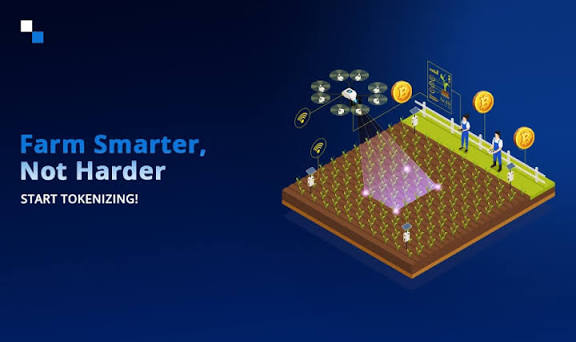IT IS YOUR MONEY
Tokenized Agriculture: Farming the Future
Tokenized agriculture is transforming farming by enabling investors to own shares in crops, livestock, and farmland through blockchain-based tokens. This model improves farmer financing, ensures traceability, and offers investors exposure to essential food production. Projects in Kenya, Brazil, and Australia are proving its viability. This innovation links capital directly to the source of sustenance.

From Soil to Security: The Tokenization of Farms
Agriculture feeds the world but struggles with underinvestment, especially in emerging markets. Smallholder farmers often lack access to capital for seeds, equipment, or irrigation. Traditional lenders see farming as high-risk due to weather, pests, and price volatility.
Tokenization addresses this by turning agricultural assets into investable securities. Investors can buy tokens representing ownership in a coffee harvest, dairy herd, or rice paddy. Returns come from the sale of produce, distributed via smart contracts.
This direct funding model bypasses intermediaries, lowers borrowing costs, and aligns investor returns with real-world productivity.
How Agricultural Tokenization Works
A farm or cooperative partners with a platform to tokenize a specific asset. For example, a cocoa plantation in Ghana may seek $200,000 to expand operations. It issues 200,000 tokens at $1 each, each entitling holders to a share of future cocoa sales.
Funds raised are used for inputs, labor, and logistics. IoT sensors and satellite imaging monitor crop health, while blockchain records planting, harvesting, and sales data.
When the cocoa is sold, revenue is converted to stablecoins and distributed proportionally to token holders—after deducting operational costs.
Smart contracts can also enforce ESG compliance, such as fair labor practices or organic certification.
Real-World Implementations and Impact
In Kenya, the startup Twiga Foods partnered with a blockchain firm to tokenize urban fruit supply chains, allowing investors to fund vendor inventories and earn returns from retail sales.
In Brazil, AgroChain tokenized soybean farms, enabling European ESG funds to invest in deforestation-free agriculture. Investors receive quarterly payouts linked to export contracts.
In Australia, AgriDigital uses blockchain to tokenize grain transactions, ensuring farmers receive instant payment upon delivery. Over 10,000 growers use the platform, reducing payment delays from weeks to minutes.
These models improve financial inclusion, reduce waste, and enhance transparency across food systems.
Benefits: Transparency, Inclusion, and Resilience
Tokenization brings end-to-end traceability—consumers and investors can verify where food comes from, how it was grown, and whether it meets sustainability standards.
It enhances financial inclusion, allowing global investors to support climate-resilient farming while earning market-linked returns.
For farmers, it provides predictable capital without surrendering land ownership. For investors, it offers exposure to inflation-resistant, essential commodities.
Additionally, tokenized agriculture supports food security by modernizing rural economies and improving supply chain efficiency.
Challenges and Path Forward
Weather risk, data accuracy, and legal enforceability remain hurdles. Oracles must reliably report yield data to trigger smart contracts.
Regulatory frameworks for agricultural securities are still developing. However, partnerships with cooperatives, insurers, and development banks are building trust.
As climate change pressures food systems, tokenized agriculture offers a scalable, transparent solution.
By connecting capital to cultivation, this innovation is cultivating a more resilient, equitable, and efficient global food economy.
To explore how tokenized agriculture can generate impact-driven returns, visit DigitalAssets.Foundation and consult with specialists. FREE consultation

More News
© 2026
